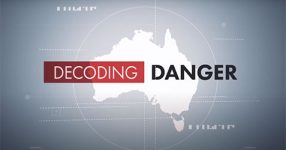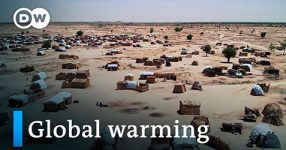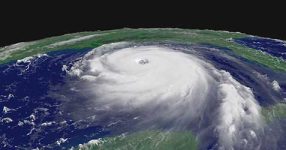The documentary, “The Race is On: Secrets and Solutions,” challenges the viewer’s perception of personal significance in the face of global climate change. It asserts that individuals, seemingly ordinary citizens, hold the key to shaping the future of the planet. Dr. James Dyke, a lecturer in sustainability science, introduces the narrative by emphasizing the transformative impact of industrialization on billions of lives and the Earth itself. The burning of fossil fuels, a daily practice for many, is identified as the primary culprit behind climate change.
A Personal Journey: Navigating Denial and Urgency
Dr. Dyke, despite his expertise, admits to his own denial regarding the gravity of climate change’s personal implications. The term “denier” is explored not only in the context of those disputing human-induced climate change but also in Dr. Dyke’s self-realization. The documentary promises to delve into the urgency of the situation, shedding light on the assumptions underlying proposed government solutions. Dr. Dyke assures viewers that this is not just a story of despair but one that unveils hope for a better society and stable climate through technological and social revolutions.
Living on the Edge: The Fragility of Our Assumptions
The documentary emphasizes the fragility of assumptions that have shaped our society, assuming a static climate, stable sea levels, and unchanging weather patterns. The repercussions of such assumptions become apparent, with millions living within one meter of potential sea level rise. The interconnectedness of human well-being and a stable climate is underscored, making it clear that protecting the living planet is paramount for a thriving economy and meeting the needs of the global population.
Time’s Ticking: Urgent Call to Action
The urgency of the situation is highlighted as the documentary explores the consequences of surpassing temperature thresholds. Dr. Dyke introduces the concept of a carbon budget, emphasizing the limited time humanity has to curb emissions. Even a seemingly moderate 2 degrees Celsius warming is described as dangerous, leading to severe consequences, especially for vulnerable populations. The countdown to make substantial changes within the next 20 years becomes a central theme, with a stark reminder that time is running out.
The UK’s Potential: A Beacon of Transformation
Amid the urgency, the documentary shifts focus to the United Kingdom’s potential to lead in technological and social revolutions. Dr. Dyke introduces the possibility of the UK abandoning coal, oil, and gas for renewable energy within a couple of decades. The emphasis is on dispelling the notion that such a transformation is impossible, backed by the claim that the UK possesses all the necessary tools and technologies. The potential of wind power and community-run initiatives, like West Moore, serves as evidence of the achievable shift towards a sustainable energy future.
Adapting to Change: Navigating Climate Change Impacts
The narrative acknowledges the reality of climate change impacts already set in motion, with extreme heatwaves, sea level rise, storms, floods, and droughts becoming more pronounced. Adaptation to these changes is deemed necessary, but the focus is on the critical importance of preventing global temperatures from exceeding the 2 degrees Celsius limit. The analogy of a guardrail is introduced, symbolizing the international community’s attempt to keep humanity away from the dangerous cliff edge of irreversible climate change.
Technological Challenges: The Unproven Role of Negative Emissions
The documentary delves into the potential reliance on future negative emissions technologies as a solution to offset current emissions. Dr. Dyke raises concerns about the significant risks associated with these unproven technologies, pointing out that their non-existence poses a significant threat to achieving the necessary reductions. The reluctance to address emissions directly and instead put faith in speculative technologies is presented as a concerning trend in international climate efforts.
Rethinking Economics: Shifting Narratives
The narrative expands beyond technological solutions, urging a reconsideration of economic models. The traditional market-based competitive economic theory is criticized for its narrow focus and potential to perpetuate inequality. Dr. Dyke emphasizes the need for a new economic theory that aligns with the challenges of the 21st century, where citizens are recognized for their roles as contributors, neighbors, demonstrators, and voters rather than mere consumers.
Polycentric Governance: The Need for Collaborative Action
Despite governmental inaction, the documentary highlights the positive trend of cities, states, and corporations voluntarily committing to reduce greenhouse gas emissions. The concept of polycentric governance is introduced, emphasizing the importance of collaborative efforts at various scales, from households to local communities and beyond. The emphasis is on learning from each other’s experiences and fostering behavior change to collectively tackle climate change.
Empowering Individuals: A Call to Action
The documentary concludes by stressing the pivotal role of individuals in transforming society. It advocates for a shift in perception, viewing climate change not as a partisan issue but as a collective challenge that transcends boundaries. Dr. Dyke calls for active participation, encouraging viewers to speak about, join, and contribute to the global effort against climate change. The journey, as portrayed in the documentary, underscores the reality of climate change while showcasing existing solutions and the potential for positive societal transformation.












